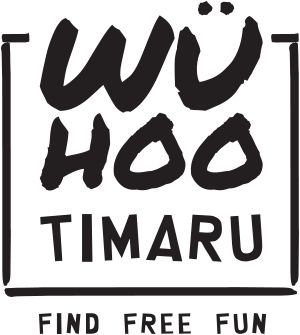It is a significant moment when communities, especially young people, begin to examine our shared past with care and curiosity.
Recently, students learning about Parihaka reflected on William Rolleston’s role in the colonial government during that period. It is encouraging to see this kind of critical engagement, where in the hunt for history we don't just take it as read, but also question and explore the past through our own fresh eyes... I think this is what education can inspire. This post was prompted by a recent article on PressReader: https://www.pressreader.com/
Meaningful reflection calls for broader research, a wider perspective. An understanding of history isn't simple, and I find as I learn more and have more conversations, my ideas and feelings can evolve. Historical figures like Canterbury’s early superintendents were complex individuals, shaped by their time and the challenges they faced.
Parihaka was a peaceful Māori resistance community in Taranaki, led by Te Whiti-o-Rongomai and Tohu Kākahi. In the face of land confiscations and Crown aggression, the people of Parihaka responded with non-violent protest, ploughing disputed land and offering refuge to those who had been dispossessed. Despite this peaceful stance, the Crown invaded Parihaka in November 1881, arrested its leaders and destroyed the village. It was a devastating event that remains one of the most painful times in Aotearoa’s history.
William Rolleston, who served as the last Superintendent of Canterbury and later held national office, is often remembered for his advocacy of public education. He was a key figure in the founding of Christchurch Girls’ High School in 1876 as well as Timaru High School and supported reforms that expanded access to secondary and university education for women and rural communities. His influence helped open the doors of formal education to young women across the country, including us, here in South Canterbury.
In early 1881, during a short stint as Native Minister, my understanding is that Rolleston attempted to find a peaceful resolution to the tensions surrounding Parihaka. He met with Te Whiti and argued for the release of imprisoned Māori protestors. He sought alternatives to violence but was ultimately replaced by John Bryce, who then led the armed invasion of the village. I dont think Rolleston challenged the colonial system, but I think he showed a preference for dialogue over force. His actions reveal that even within government, there were different approaches to Māori relations, though none were free from the framework of colonisation.
I had actually been learning about Rolleston while learning about how new opportunities for women were shaped during this era. So my hunt for history was on a different path. Before the 1880s, girls’ education was largely focused on domestic training. Academic study and university pathways were rare. New Zealand was one of the first countries in the world to offer secondary schooling for girls, often earlier than similar institutions in Britain. Yet this progress came with limitations. Many women, especially those working as teachers, were expected to resign upon marriage. I was struck, while researching pioneering women in New Zealand, by how many died listed as “Miss.” At first I did not understand. Then I realised that to pursue a profession often meant choosing not to marry. These women made difficult choices, and their achievements were the result of both personal sacrifice and the support of others who believed that education should not be denied on the basis of gender.
The names of Christchurch’s Four Avenues (Moorhouse, Fitzgerald, Deans (formerly Bealey), and Rolleston) are part of the city’s identity. They remind us of Canterbury’s early leadership, and with that comes a responsibility to understand their legacies in full. We cannot afford to look away from the darker chapters, or simplify the lives of those who shaped our institutions. Public monuments don't have to be celebrations. They are an artwork, where the interpretation can be open to the viewer. They can be a sign post of our journey we have been on, to invite reflection and conversation.
I think to be able to move forward, we can't censor or hide the past. We make progress when we are willing to examine it honestly, to acknowledge both harm and hope, and to listen to many voices... including those whose stories have too often been left untold.
